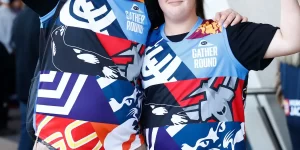When it comes to lithium offtake, few companies can compete with the prestige of securing the Tesla embrace.
So it should come as no surprise that Core Lithium hit an all-time high of $1.02 a share this week after announcing a binding term sheet with the EV pioneer. From mid-2023, Core will supply Tesla with up to 110,000 tonnes of lithium spodumene concentrate over four years from the Finniss project near Darwin, in the Northern Territory.
Long-term investors’ faith in Core continues to pay handsome rewards.
Core’s (ASX: CXO) share price has risen more than 380% over the past year and this week broke through the psychological $1 barrier for the first time before closing yesterday at 95¢ per share.
It is a textbook example of the ability of quality companies to attract quality partners and generate real shareholder value. And there were two other examples this week.
Perth robotic technology company FBR (ASX: FBR) said on Thursday it had entered into a memorandum of understanding with German giant Liebherr to accelerate the commercialisation of its next-generation Hadrian X bricklaying robot.
And Hastings Technology Metals (ASX: HAS), on track to become Australia’s next rare earths producer, signed up Tier 1 Danish manufacturer FLSmidth for the acid-bake rotary kiln for the hydrometallurgical processing component of its world-scale Yangibana project in WA’s Gascoyne region.
In other news:
- Buru reports successful initial flow test at Rafael 1
- BMG completes major drilling program at Abercromby
- Vimy updates on strategic review process
- Mineral Resources’ inaugural managing director Peter Wade retires
- Dreadnought kicks off RC drilling at Illaara project
- Focus confirms that TGM’s unsolicited takeover offer was unsuccessful
- NRW unit Golding receives binding $800m LOI for Baralaba North
Announcing the deal with Tesla, Core said it expected a definitive product purchase agreement to be executed in late August. The agreement will take advantage of strong spodumene prices and complement the offtake agreements already secured by Core with lithium heavyweights Gangfeng and Yahua for the supply of 75ktpa of spodumene to each over four years.
Core remains on track to deliver first production from Finniss before the end of this year but also has one eye fixed firmly on a future expansion of its flagship project. Tesla flagged additional support to Core around the potential Stage 3 expansion of Finniss into downstream processing with a view to incorporate future lithium hydroxide into the EV car maker’s supply chain.
Core managing director Stephen Biggins said he was thrilled to have Tesla on board.
“[We] look forward to further growing this relationship in the years to come,” he told shareholders.
“Tesla is a world leader in electric vehicles and its investment in offtake and interest in our expansion plans for downstream processing are very encouraging.”
Lithium may be the vital component in EV batteries but the motors they power require another key resource in the EV supply chain – permanent magnets that rely on a steady supply of rare earths.
For Hastings’ investors, the reactivation of the contract with FLSmidth for the $17.4m acid-bake rotary kiln for Yangibana’s hydrometallurgical plant is yet another sign of the Perth company’s progress towards a positive financial investment decision before project construction starts in earnest. Hastings has flagged first neodymium and praseodymium-dominant mixed rare earths concentrate by the second half of 2024.
The rotary kiln is a key plank of the hydrometallurgical plant, which will be built at Onslow to take advantage of key infrastructure not available at the Yangibana mine site.
One of Hastings’ key competitive advantages over wannabe rare earths producers listed on the ASX is the quality of its offtake partners, which include German giants thyssenkrupp and Schaeffler.
German is proving a happy hunting ground for ASX-listed companies seeking to demonstrate the quality of their projects.
The Liebherr group is a world leader in engineering, construction and building equipment, having begun life when Hans Liebherr invented the mobile crane tower in 1949.
Still owned by the founding family, the Liebherr group has kept an eye on emerging building technologies. It therefore should not have come as a surprise that Liebherr was attracted to FBR’s revolutionary Hadrian X bricklaying robot.
Over the past two years, Hadrian X passed a number of proof-of-concept house-build projects with flying colours.
The two-phase MoU with Liebherr’s Liebherr-Mischtechnik unit, announced this week, sent a strong signal to the market about Hadrian X’s potential and mass-production opportunity.
During phase one envisaged under the MoU, Liebherr-Mischtechnik will work with FBR to ensure Hadrian X is fit for reliable, continuous operation throughout its entire economic life and that manufacturing is viable at the scale and cost necessary for serial production and full commercialisation.
Phase two will see the appointment of Liebherr-Mischtechnik as exclusive manufacturer of Hadrian X robots.
FBR managing director Mike Pivac said working with a company of Liebherr’s calibre and quality was a milestone for his company.
“This MoU demonstrates a clear pathway for FBR to achieve scale with the support of an aligned partner who understands the future construction industry landscape and has the technical capability, reputation and professionalism to deliver 21st century machinery such as the Hadrian X to the world,” Mr Pivac said.
The Liebherr MoU adds to the impressive line-up of partners that FBR is managing to attract on the back of Hadrian X, which has proven a safe, reliable, quick and economic option to complete bricklaying work.
The Liebherr news pushed FBR’s share price up 9% before the stock closed the week at 3.5¢ per share.
